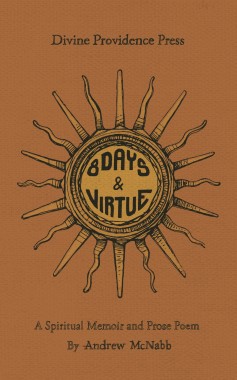Mystical encounters abound, but they are not always from God. The Church takes these experiences seriously and thus provides guidelines for our discernment. Sometimes the Church rules in a definitive way regarding their validity, but often there is no ruling or no need for one.
In my own life, I have encountered a number of mystics, some of whom I perceived to be authentic and others of whom I perceived to be false mystics. False mystics are easy to spot. Their revelations often point to how special they are and how important they are. Sometimes they are simply self-decieved, but sometimes their deception comes from a more dangerous source.
In one case, I provided spiritual direction to a person with dramatic manifestations that the individual perceived to be reflective of the heights of prayer as illustrated by St. Teresa of Avila. As I began to draw the individual into the heart of the Church, these manifestations were revealed to be demonic and dramatically changed into a nightmarish torment.
So it is with private revelation and mystical experiences that the Church admonishes caution, discernment, and no obligation to believe. Even with the officially “approved” apparitions like Fatima, the Church does not require belief, but only proposes that it may be beneficial (and often it is).
It has always been a policy of this site to steer clear of private revelations or any emphasis on particular mystics and their experiences. The reason for this is simple enough – there is a possibility of giving audience to someone’s experiences that could turn out as some of my experiences as I illustrated above. Our policy remains in place, but because I can, I am going to make an exception.
I came across Andrew McNabb’s book Eight Days and Virtue through one of the professors of the Avila Institute. She had read his book and talked with him  and found the book to be theologically sound and credible. She recommended that I read it and I did and have come to the same conclusions. I have also talked with Andrew at length thus I am comfortable proposing the book to you.
and found the book to be theologically sound and credible. She recommended that I read it and I did and have come to the same conclusions. I have also talked with Andrew at length thus I am comfortable proposing the book to you.
Why promote it?
In St. Teresa’s day she was criticized for revealing her experiences with God. Her argument was cogent and strong. If we don’t know that God actually does draw us into profound encounters with Him, we won’t desire the reality and possibility of deep and tangible union with God. If we don’t desire to know Him in a real tangible way, we won’t pursue Him in a real and tangible way.
This doesn’t mean that we seek these experiences, but that we recognize and acknowledge that what Jesus promised in John 14 is true; if we love Him, and live in a covenant of love with Him, He will “manifest” Himself to us; and that He and the Father will “abide” with us. This is mysticism, the real and tangible encounter with God in time, space, and experience.
Andrew’s book is offered in two parts. The first is an eight-day adventure wherein God dramatically disrupts Andrew’s life with His life-changing and often unnerving self-revelation. The second is Andrew’s mystical meditation on virtue. The second part of the book is worthy of use for Lectio Divina or simple contemplation in mental prayer. Our professor noted that Andrew’s reflections were moving, beautiful, and reminiscent of St. Francis de Sales’ deep insights on virtue.
So it is that I offer Andrew’s book to you. I believe it can and will help many to recognize the reality of the personal and experiential nature of God that can and will break through the bane of our earthly toil. No, we are not all called to experience exactly what Andrew has experienced, but we are all called to pursue God with all our heart, soul, mind and strength. I believe that this book will help many to do just that.
Click here to purchase the book now.
Here’s more from the back of the book:
“In 8 Days, Andrew McNabb recounts the ecstatic mystical religious experiences that took place in his life over an eight day period in 2011. With literary attention, this career short-story writer, husband, and father of four details how he was swept up into a place “not quite here” and “not quite there,” a place in which he experienced both the ethereal and the terrifying, the awe-inspiring and the confounding.
“Over these eight days,” he writes, “in addition to direct ecstatic union with the individual members of the Blessed Trinity, I was given key spiritual insights and illuminations, and was witness to awe-inspiring divine manipulations of both nature and humanity…(but) perhaps most disturbingly, in addition to all the good, I was also given an awareness of the real presence of evil-and even interaction with it.” McNabb’s experiences are often thought to be the exclusive domain of medieval saints. While the author admits he is far from saintly, his account provides crucial insight into-and perhaps even an answer to-the most important question ever asked: Does God exist?
Published here under the same cover is Virtue, McNabb’s book-length prose poem or “mystical prayer.” These two works are inextricably linked; as McNabb details in 8 Days, it was at the very moment he typed the period that would end Virtue that his odyssey emphatically began. Virtue is a paean, a poetic and prayerful work that seeks, also, to be instructive by way of a logical progression which culminates, ultimately, at that highest point on the spiritual mountain: union with Him in true love.”
Click here to purchase the book now.
PS: Please refrain from admonitions of caution in the combox as I have already covered that ground and there is no need to repeat it… thanks!




